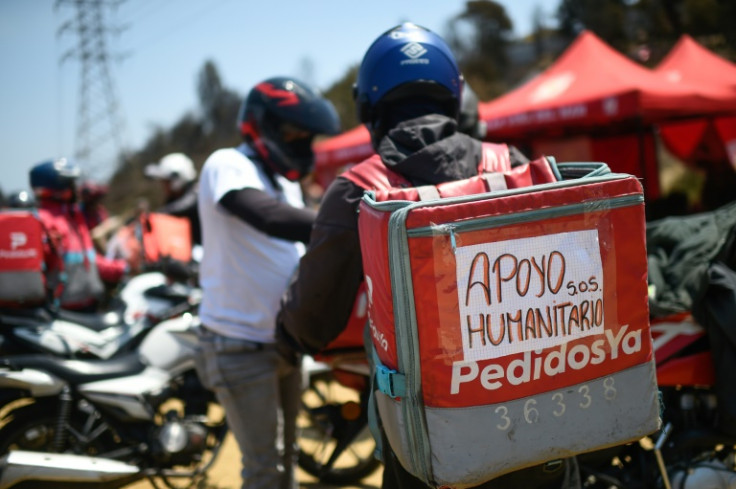Chile Wildfire Death Toll Rises To 131

The death toll from a weekend inferno that razed hilltop neighborhoods in a coastal region of Chile rose to 131 on Tuesday, as forensic teams carried out the painstaking process of identifying the deceased.
Five days after wildfires tore through the crowded communities, fueled by winds and a brutal heatwave, firefighters are still searching for victims.
Volunteers have been helping clear streets left strewn with charred cars, debris and ash after the world's third-deadliest wildfire this century, which left some 20,000 people homeless.
Most of the fatalities have been in Vina del Mar, a popular tourist spot known for its beaches and botanical garden -- which was razed.
The state forensic agency reported eight more deaths after the previous tally, and said only 35 of the victims have been identified since the fire devastated the region 120 kilometers (74 miles) north of the capital Santiago.
"Medical teams have carried out 82 autopsies," the forensic office said in a statement.
The slow process left many desperate for news of their missing family members, while others just wanted closure.
"We need them to come and remove the bodies of our relatives, that's all we ask," said Claudia Salazar, whose aunt was the nursery manager at the Botanical Garden, where she lived in a home that was devoured by fire.
The director of the medical examiner's office, Marisol Prado, said forensic workers would begin taking samples from relatives with missing loved ones "to do DNA dentification."
Currently identification is being done via biometric and fingerprint tests.
Firefighters are still fighting nine active blazes in the region, however they are now considered under control and no longer a threat to urban areas.
As offers of help poured in from abroad, Venezuelans -- who form the largest migrant community in Chile, and are often stigmatized -- rallied to offer their assistance.
Venezuelans who work for online food delivery services and have motorbikes, pasted signs reading "humanitarian aid" to their backpacks, carrying water and food to the neighborhoods where they often work.
According to a study by the private Diego Portales university, about 30,000 Venezuelans work as food delivery drivers in the country.
"Maybe we don't have money, but we do what we can, what is within our reach, bringing a lot of water, above all," said Jeraldin Rincon, a nursing student, who fled the economic crisis back home in 2017.
The fires are being driven by a summer heatwave and drought affecting the southern part of South America caused by the El Nino weather phenomenon. Scientists warn that a warming planet has increased the risk of natural disasters such as wildfires.
In the Patagonia region of Argentina, some 6,000 hectares of forest have been destroyed in a fire that began on January 25, and has been fueled by high heat and strong winds.

© Copyright AFP 2024. All rights reserved.











